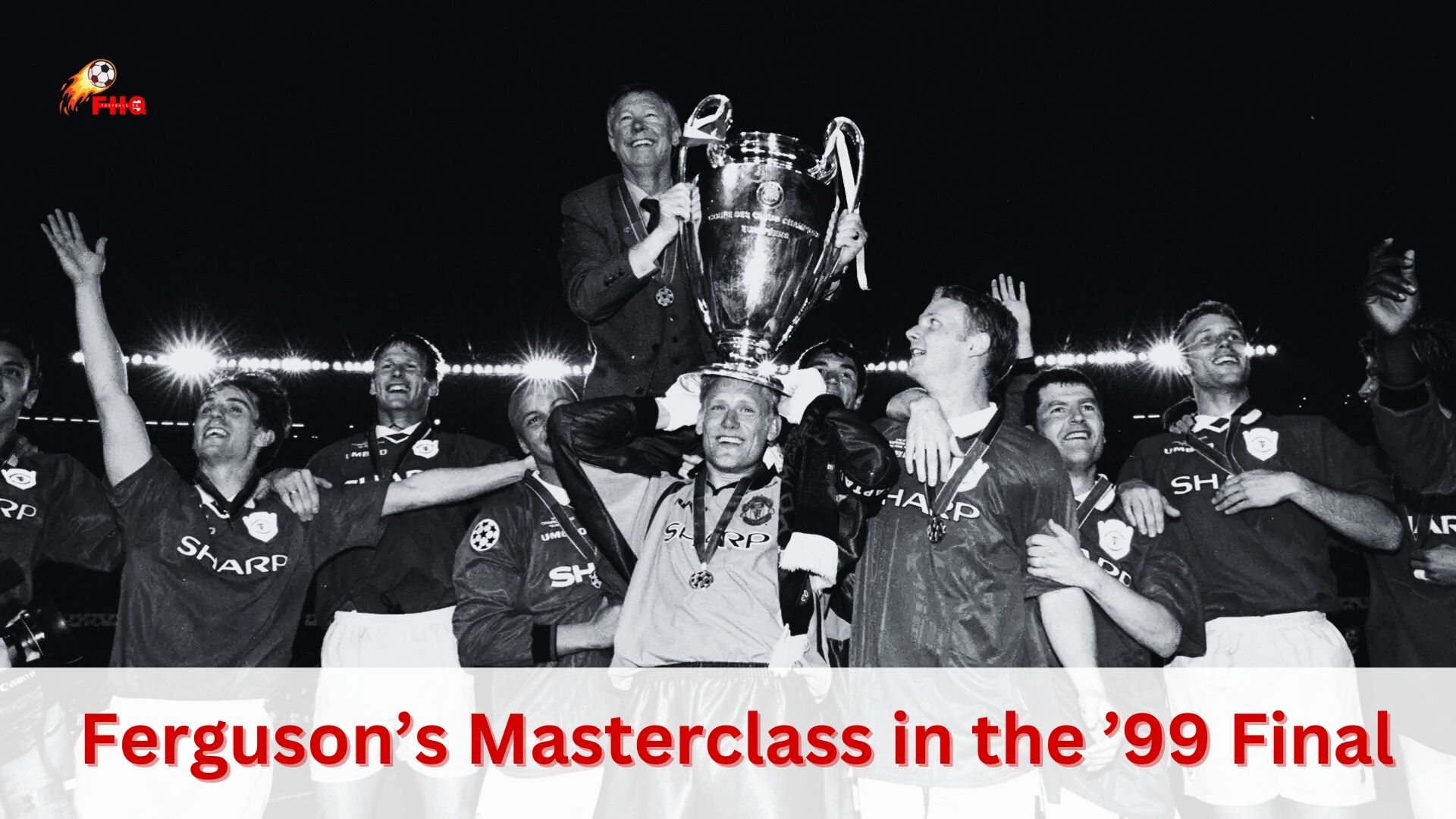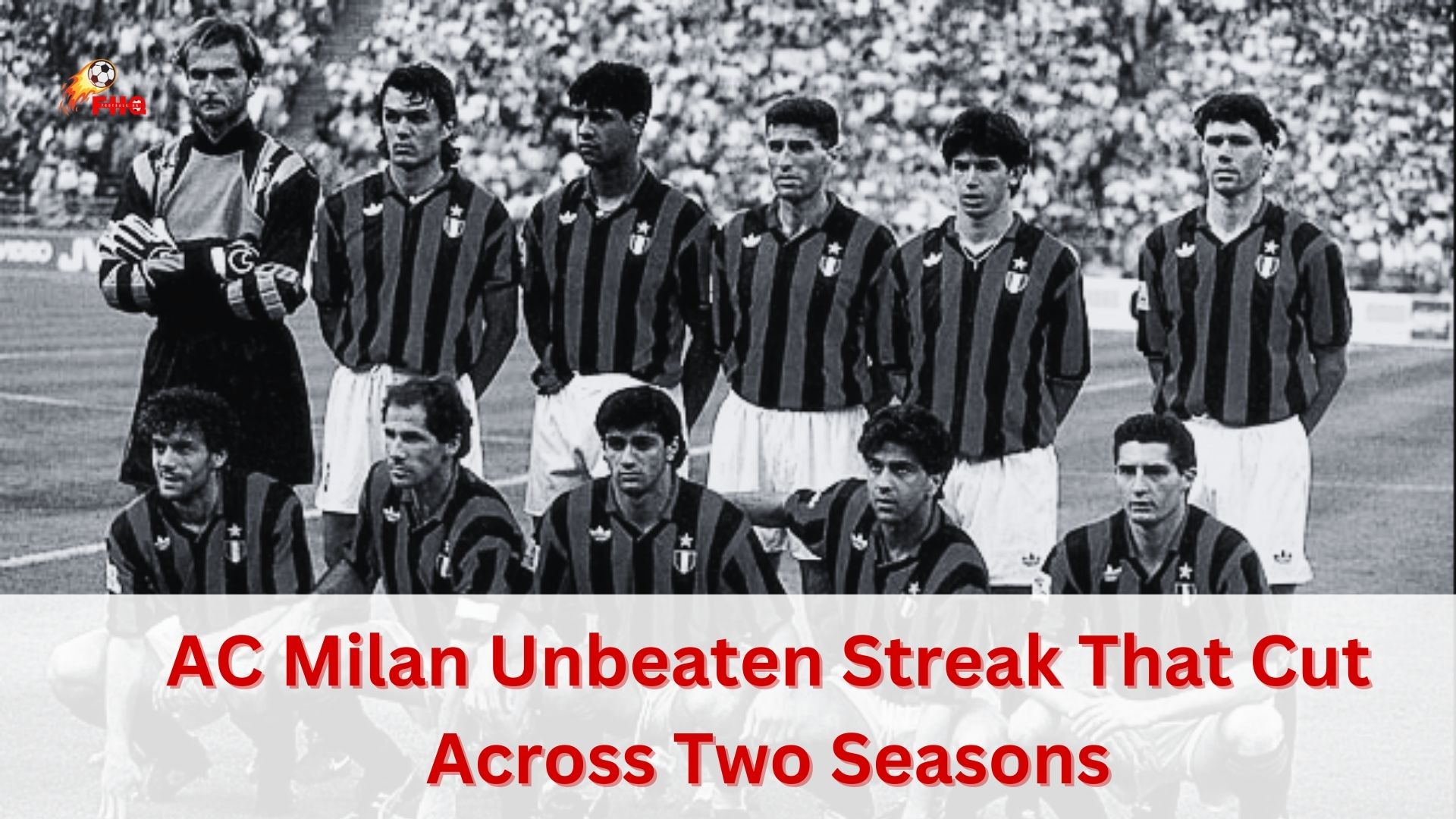
I still get goosebumps when I hear the commentary ring out, “and Solskjaer has won it!” That extraordinary match defined Manchester United’s culture: never give up and never give in. Let’s dive into a personal recap and tactical analysis of that insane night at the 1999 Champions League Final at Nou Camp. Grab a drink, settle in, and let’s relive history together.
The Road to Barcelona: Treble Talk and Fergie Time
Remember the buzz in 1998–99? United were chasing the Treble—Premier League, FA Cup, and the Champions League—all in one season. Fergie’s classic 4-4-2 formation became our safety blanket, offering defensive stability and attacking fluidity. Whenever United needed a spark, we knew Fergie Time was coming—those late goals that felt like destiny.
In midfield, Roy Keane and Paul Scholes bossed the center, controlling tempo and nicking the ball back. Out wide, Ryan Giggs and David Beckham delivered the kind of pinpoint crosses you only dream of. Then up front, the Cole–Yorke partnership churned out 53 goals across competitions. When Sir Alex needed to tweak things—like shuffling Keane deeper against Juventus or throwing on Sheringham and Solskjær late in Munich—he did it without blinking.
That 1999 Champions League Final Against Bayern Tactical Analysis
Early Setback, But Never Surrender
Six minutes in, Mario Basler curled a free-kick around our wall and past Schmeichel—a nightmare start. Suddenly, the Treble dream hung by a thread. United began to dominate possession (53–47% overall) yet couldn’t fashion a clear chance. Bayern’s counter-attacks were slick, and their defence, marshalled by Thomas Linke and Samuel Kuffour, looked solid.
Half-Time Adjustments
In the dressing room, Fergie didn’t panic. He told us explicitly: “If you lose, you’ll be six feet from this trophy and you won’t even touch it.” That line—brutal and bold—reminded everyone why we fight until the last whistle. He brought on Teddy Sheringham in the 67th minute, shifting to a looser diamond midfield: Giggs on the left, Beckham on the right, Yorke dropping deeper, and Sheringham spearheading the attack.
The Impact Substitutes
Sheringham Strikes First
Sheringham had scored only four goals that season, yet in the 91st minute, he ghosted into the box and flicked Giggs’ scuffed snap-shot into the net—goals scored after the 80th minute were our trademark, and this was peak Fergie Time.
“It’s come for Dwight Yorke. Cleared… Giggs with the shot, Sheringham!”
Solskjær’s Moment of Magic
Less than two minutes later, another corner. This time there was no Schmeichel marauding forward, so Beckham whipped it to Sheringham at the near post. The ball flicked on, and Ole Gunnar Solskjær, who had only just come on, pounced with a deft finish into the roof of the net. “And Solskjær has won it!” echoed around the globe. Two goals in 101 seconds—pure, unbridled pandemonium.
Key Players Who Made It Happen in The 1999 Champions League Final
-
Peter Schmeichel (GK & Captain): His extra-time charge for the 1–1 corner was unthinkable—and unforgettable.
-
Jaap Stam & Ronny Johnsen (Centre-Backs): Conceded just 37 league goals all season; a calming presence all night.
-
Roy Keane & Paul Scholes (CMs): The engine room—tempo controllers and ball winners.
-
Ryan Giggs & David Beckham (Wingers): Combined for 18 league goals from crosses; Beckham’s delivery was surgical.
-
Teddy Sheringham & Ole Gunnar Solskjær (Subs): The ultimate “super-subs,” showcasing United’s deadly depth.
Defining Moments Beyond the Final
-
2-0 FA Cup Semi vs Arsenal – Down to ten men, Giggs’ wonder goal from halfway set up Wembley glory.
-
3-2 CL Semi vs Juventus – Keane’s legendary all-action display sparked the comeback.
-
6-1 League Hammering of Arsenal – A statement of attacking power mid-season.
-
2-1 Title Sealer vs Tottenham – Another come-from-behind win keeping the Treble charge alive.
-
Late Goals Stat – 17 goals scored after the 80th minute in the league alone. Resilience personified.
Numbers That Nail Ferguson’s Genius
-
128 goals in all competitions—attacking prowess off the charts.
-
28 points gained from losing positions—a mind-blowing mental edge.
-
36 wins across competitions—consistency at the highest level.
-
83% pass completion—dominated possession.
-
20 set-piece goals—dead-ball mastery courtesy of Beckham and Scholes.
My Final Whistle
I’ve watched dozens of finals since, but none carry the same weight or drama. It wasn’t “an accident” (as Fergie later reminded UEFA). We did it so many times that season. That team’s never-say-die spirit, tactical flexibility, and perfect blend of youth and experience set a benchmark that’s yet to be matched in ny other inal besides 1999 Champions League Final. Every time someone says “Fergie Time,” they’re paying tribute to those 101 seconds of injury time that will forever echo in football folklore.


